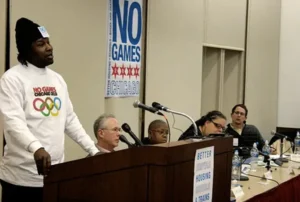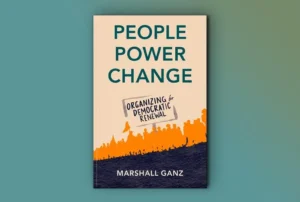January 15, 2013; Source: City Paper
License plates with a message! As NPQ has followed this issue on an ongoing basis, we’ve found that this has been a thorny issue for state governments and nonprofits trying to figure out what kinds of entities might be entitled to get specialty plates, what messages work and don’t work for state-issued plates, how the economics of the specialty plates are handled, and perhaps most importantly, which high profile persons are willing to put the message plates on their cars.
In Washington D.C., we would guess that President Obama hasn’t been behind the wheel of a car since he took office. Those of us sometimes caught behind presidential motorcades haven’t seen the president leaning on his horn to get through Dupont Circle like the rest of the District’s harried motorists. But the president will be adopting a message on the plates of his limousine that he had spurned during his first four years in office: D.C.’s “Taxation Without Representation” license plate. This plate reminds people that D.C.’s congressional delegate, Eleanor Holmes Norton, cannot vote in the House of Representatives despite the fact that more people live in Washington, D.C. than in Vermont or Wyoming.
Why now when he didn’t do it for four years? Here is the statement from the White House, according to the Washington City Paper:
“President Obama has lived in the District now for four years, and has seen first-hand how patently unfair it is for working families in D.C. to work hard, raise children and pay taxes, without having a vote in Congress…Attaching these plates to the presidential vehicles demonstrates the President’s commitment to the principle of full representation for the people of the District of Columbia and his willingness to fight for voting rights, Home Rule and budget autonomy for the District.”
Sign up for our free newsletters
Subscribe to NPQ's newsletters to have our top stories delivered directly to your inbox.
By signing up, you agree to our privacy policy and terms of use, and to receive messages from NPQ and our partners.
The D.C. “Taxation Without Representation” reportedly sprang from an idea credited to an intern who worked at DC VOTE, the nonprofit organization that has been advocating for full voting rights for District residents since it was founded in 1998. The result is that President Obama will be displaying something of a nonprofit-generated specialty plate, except that the specialty plate is the norm for drivers in Washington, D.C.
Other specialty plates don’t get quite the same level of support. In North Carolina in 2011, the state legislature passed a bill authorizing a “Choose Life” license plate, but rejected amendments to allow for an alternative message such as “Respect Choice” as well. The American Civil Liberties Union challenged the statute, and this past December, federal court judge James Fox ruled that the state’s failure to offer an alternative to the anti-choice plate was a violation of the First Amendment. This month, the state announced it is going to appeal that decision to fight having to offer a “Respect Choice” plate along with the “Choose Life” plate.
The “Choose Life” plate was one of 80 approved by the state legislature. The “Choose Life” plates cost motorists $25, from which $15 goes to the Carolina Pregnancy Care Fellowship, a group that provides pregnancy counseling. In launching an appeal to Judge Fox’s decision, the state is willing to devote tax resources to pay for lawyers to argue a case in the Fourth Circuit Court of Appeals that will cost more money than a few hundred people buying the “Choose Life” plate will generate. This is the cost of attempting to deny pro-choice advocates a dose of free speech equal to that of pro-life advocates.
In North Carolina, pro-life advocates could have simply chosen not to displace a “Respect Choice” plate, just as President Obama’s predecessors (other than President Clinton for a year or so) opted to sidestep the message of full voting rights for the more than 617,000 people living in Washington, D.C. The battle over license plates will keep courts at all levels occupied for many years to come.—Rick Cohen












